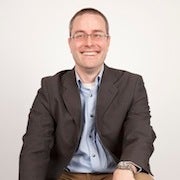
David Biello recognizes the challenge of engaging people in environmental issues.
“A lot of folks feel like it’s too late. People feel like we kind of made our bed and now we have to lie in it, so they throw up their hands and tune out,” said Biello, an associate editor at Scientific American and an alum of Metcalf Institute’s 2011 Science Seminar on Impacts of the Deepwater Horizon Oil Spill. “I think the main way to address that is to not just talk about problems, but also solutions.”
Biello covers energy and the environment for Scientific American, where he reports on everything from oil exploration and climate change to alternative energy, pollution and fracking. He also produces a podcast called 60-Second Earth, a weekly segment that delivers a quick dose of “sharp science” on a variety of subjects.
“I cover energy and environment because I think these two sprawling mega-topics are among the most important stories to cover. Period,” said Biello.
Recently, Biello hosted an award-winning, fast-paced documentary with Detroit Public Television, Beyond the Light Switch, that explores the future of electricity and how today’s energy decisions will affect the planet for decades to come.
“The hope would be that viewers come away with a little better understanding of how electricity in the U.S. really works, and what it takes to enable you to flip a light switch wherever and whenever you want.”
Biello says Metcalf’s Science Seminar for Journalists on the Deepwater Horizon oil spill not only informed his coverage of the spill’s one-year anniversary, it also generated other stories ideas and introduced him to sources that he still reaches out to today. “In my view, it was fantastic and really helped ground the reporting,” said Biello.
For journalists considering Metcalf programs, Biello says it’s a great way for reporters to get re-inspired. “You’ve got to do it. I would recommend doing it as soon as possible. You’re going to get such solid grounding in science and the issues, and such a wealth of information from the experience,” he added.
Biello is currently working on a book, due to be released in 2015, about whether humanity’s impacts have become planetary in scope “and, if so, what should be done about this Anthropocene,” a term used to describe the current geological age during which humanity has a significant–and potentially very long term–impact on the environment.
Read more alumni profiles